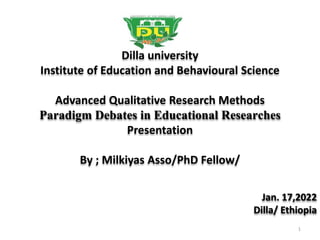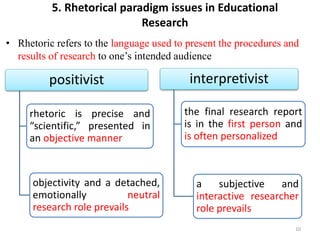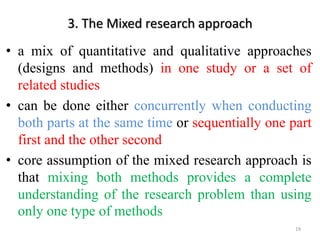1. The document discusses paradigm debates in educational research, outlining the key differences between positivist and interpretivist paradigms in terms of ontology, epistemology, methodology, axiology, and rhetoric.
2. It also examines four main epistemological positions - positivist, constructivist, transformative, and postcolonial indigenous. Qualitative, quantitative, and mixed research approaches are then compared based on their assumptions about the nature of reality, knowledge, values, and methodology.
3. In closing, the author expresses that their future philosophical position will be interpretivist/constructionist, as they believe realities are multiple and constructed through interaction and negotiation with others.


























